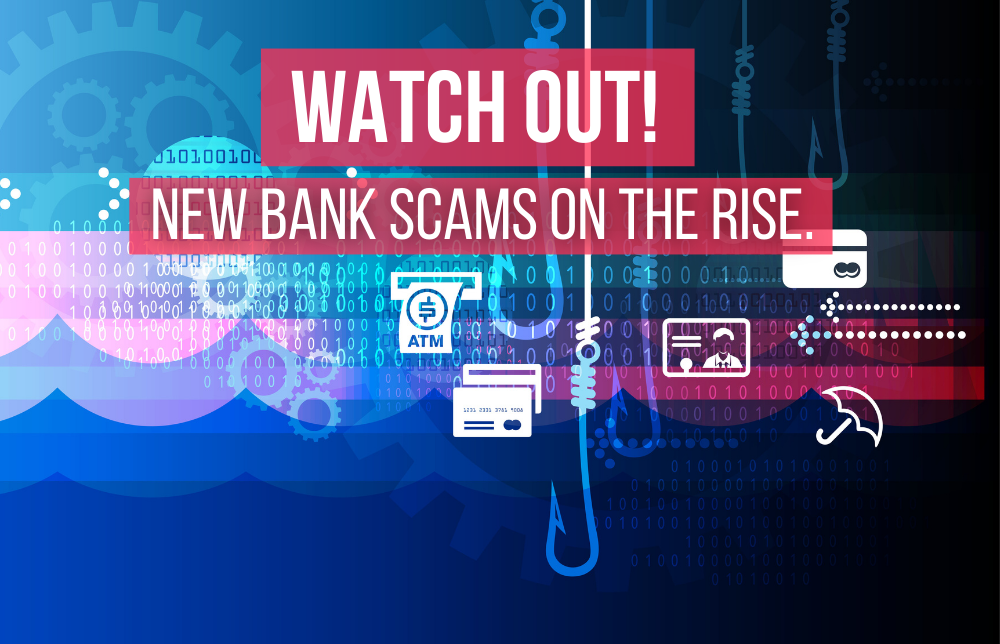
Watch Out! New Bank Scams on the Rise.
May 1, 2023
|
You may be familiar with the news of some recent bank failures. As a result of these events, many financial institutions and online retailers, banks, and credit card companies are requesting customers update their banking and account information. Unfortunately, scammers are using this opportunity to take advantage of unsuspecting customers and trying to trick people into believing they are contacting you from one of these. They’ll claim that you need to update your account information. They may tell you that you need to send money to a phony bank account or provide your personal banking information, or other methods to attempt to rob you. Be skeptical of these update requests. Here are some tips that can keep you safe from potential scams: |
|
- Do not click on any links in an unsolicited email or text message asking you to update or verify account information. - Don’t rely on caller ID to confirm someone’s identity. Scammers can “skin” a legitimate phone number to make it look like they’re calling from your bank’s phone number. - The scam may ask you to change a payment destination. Again, until you can confirm the request is legitimate, do not click on any links or agree to any changes. - The scam might come as an email or text message, claiming to be from an online retailer, credit card company, or financial institution. Scammers tend to use the most popular sites for the increased likelihood that their prey does in fact do business with them and will click a bogus link. If you receive an email claiming to be from a site that you know you don’t do business with, send the email to your spam folder. Always go directly to the website of the business and make any account updates directly once you’re securely logged on. - A telltale sign that the caller or sender is running a scam is if they try to pressure you to make a decision immediately. If so, hang up immediately or delete the message. - Do not send funds or personal information until you can confirm that the request is legitimate. Tricksters’ tactics constantly evolve, but their objective is always the same: to swindle you from your money. IRTA and AMBA will continue to update you on how to stay safe from scam artists. It’s all part of how we look out for you, your well-being, and your financial safety every day. |
RECENT POSTS
An Ambulance Trip Is Stressful: With MASA, the Cost Doesn’t Have to Be
People who require an emergency ambulance trip frequently ask the same question upon receiving the bill: “Why was the
Read More
AMBA’s Essential Insights in Dental Health: Understanding Cavities
Have you ever experienced pain or noticed persistent sensitivity in your teeth? You might have a cavity. Cavities are common,
Read More
Keep “Looking” Your Best: The Unique Eye Health Challenges for Women Over 55
March is Women’s History Month, a time to celebrate women's contributions to American history and society. It’s
Read More

Leaving Your Home To A Loved One
If you’re like many people, your home represents more than just financial value. As the saying goes, "Home is where the
Read More

